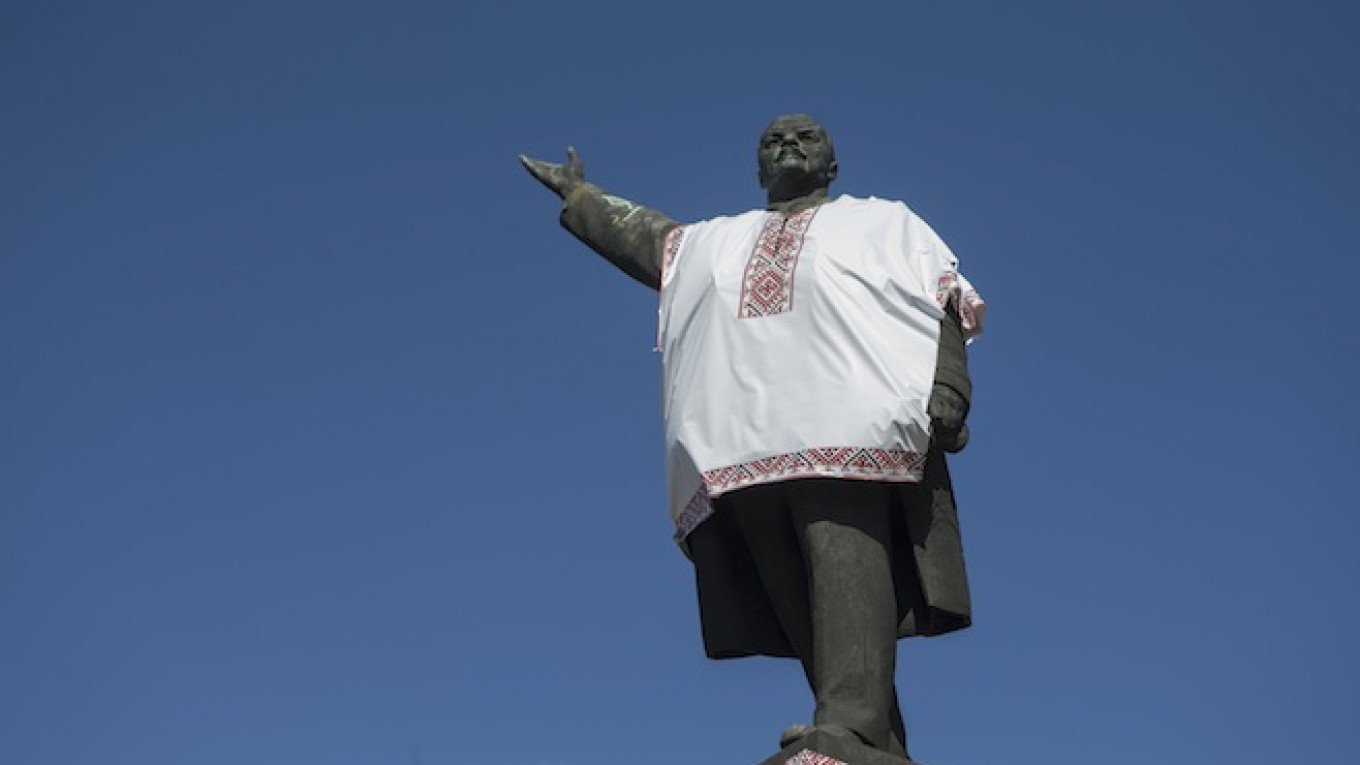In a bid to shake off its Soviet legacy, authorities in central Ukraine's Poltava region have pledged to strip the area of 117 monuments of Vladimir Lenin within a month.
More than one hundred monuments have already been removed, but 117 remain standing, all of which are to be taken down by Nov. 24, Poltava Governor Viktor Bugaichuk said in a statement on the regional administration's website.
In Soviet times, every inhabited town and official building was required to have a full-body statue or bust of Bolshevik revolutionary Vladimir Lenin, the founder of the Soviet Union.
Most of those remain standing as historical mementos, but in Ukraine, growing anti-Russian sentiment has made the Lenin statues a target.
The deadline for the sweeping purge of Lenin statues on Nov. 24 coincides with Ukraine's official remembrance day for the Holodomor — a state-orchestrated famine that devastated southern swathes of the Soviet Union, killing between 4 million and 8 million people, most of whom were Ukrainian.
The issue is a heated point of contention between Ukraine, which calls it a genocide, and Russia, which says the policy that caused the famine targeted wealthy landowners regardless of their ethnicity.
Poltava will also stage several events to promote awareness of the Holodomor, Bugaichuk said in the statement.
Ukraine has seen a "war of monuments" in the years leading up to the recent civil strife in the country's east, with pro-Russian activists attacking monuments of Ukrainian national heroes and pro-Ukrainians targeting Communist statues in retaliation.
Statues of Lenin in Russia have also had to weather their fair share of storms: One unlucky Lenin statue at St. Petersburg's Finlyandsky train station was left with a large hole in its buttocks as the result of an explosion on April Fool's Day in 2009.
A Message from The Moscow Times:
Dear readers,
We are facing unprecedented challenges. Russia's Prosecutor General's Office has designated The Moscow Times as an "undesirable" organization, criminalizing our work and putting our staff at risk of prosecution. This follows our earlier unjust labeling as a "foreign agent."
These actions are direct attempts to silence independent journalism in Russia. The authorities claim our work "discredits the decisions of the Russian leadership." We see things differently: we strive to provide accurate, unbiased reporting on Russia.
We, the journalists of The Moscow Times, refuse to be silenced. But to continue our work, we need your help.
Your support, no matter how small, makes a world of difference. If you can, please support us monthly starting from just $2. It's quick to set up, and every contribution makes a significant impact.
By supporting The Moscow Times, you're defending open, independent journalism in the face of repression. Thank you for standing with us.
Remind me later.


